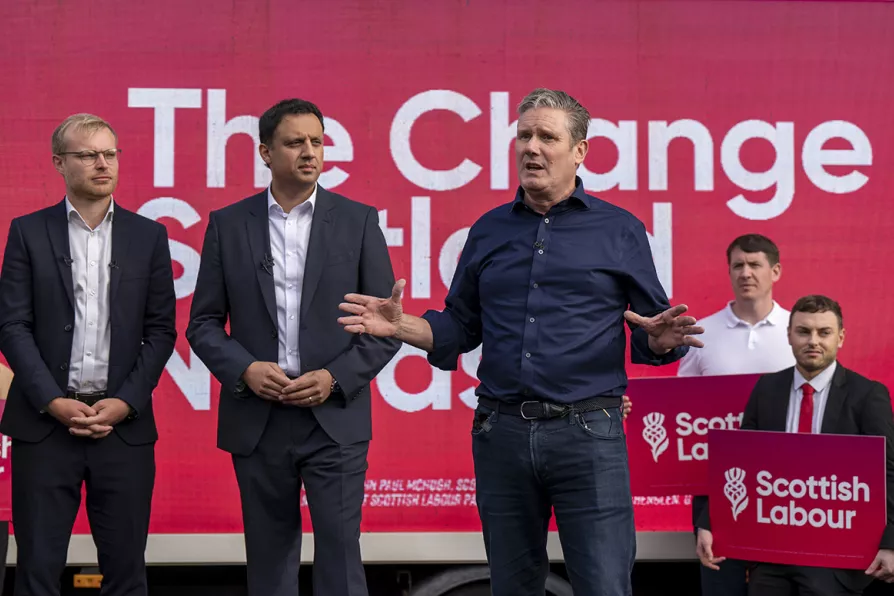
 Labour leader Sir Keir Starmer with Scottish Labour leader Anas Sarwar (centre) and the new Labour MP for Rutherglen and Hamilton West Michael Shanks (left) at a rally following Scottish Labour's win in Rutherglen and Hamilton West by-election, October 2023
Labour leader Sir Keir Starmer with Scottish Labour leader Anas Sarwar (centre) and the new Labour MP for Rutherglen and Hamilton West Michael Shanks (left) at a rally following Scottish Labour's win in Rutherglen and Hamilton West by-election, October 2023
EARLIER this week, Labour Together’s Josh Simons took to the airwaves to suggest shipping a barge of people-smuggler gangs to the north of Scotland.
Speaking days before the start of the Scottish Labour conference, Simons’s suggestion was widely condemned. Well accustomed to dealing with such clangers from London, Scottish Labour described Simons’s LBC appearance as a “moment of cringe” from the “fringes” of the party.
This was disingenuous. Labour Together is central to the Starmer project, having propelled the London MP to the Labour leadership in 2020.

Having endured 14 years of Tory austerity followed by Starmerite cuts, young voters are desperate for change — but Anas Sarwar’s refusal to differentiate from Westminster means Scottish Labour risks electoral catastrophe, writes LAUREN HARPER

COLL McCAIL rejects the Scottish Establishment’s attempt at an ‘elite lockout’ of Reform UK and says the unions should be wary of co-option by their class enemies in Holyrood just to keep one set of austerity-mongers in power instead of Reform UK












